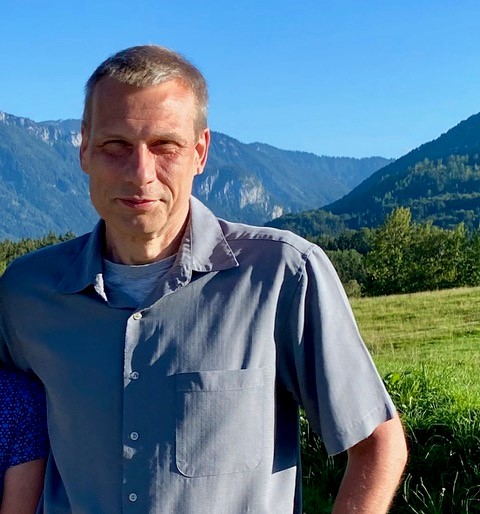
Professor Andreas Weber is a world leader in plant metabolism. He is the coordinator of the H2020 project Gain 4 Crops. This project is using innovative plant breeding techniques to engineer novel disruptive technologies to overcome photorespiration, one of the main constraints on photosynthetic efficiency.
His research interests include physiology, biochemistry, and molecular biology of solute transport in plant cells; compartmentation of metabolic pathways and metabolic networks; photorespiration; C4 photosynthesis, extremophilic eukaryotes, ‘Omics technologies, synthetic experimental evolution and synthetic biology.
Professor Weber is Senior Editor of Plant, Cell & Environment and is based in the Institute of Plant Biochemistry at the Heinrich Heine University, Dusseldorf.
Title: Photorespiration: driver of evolutionary innovations and target for increasing photosynthetic efficiency
Webinar date: Tuesday 1st March 2022 14.00 CET
Abstract: Photosynthetic incorporation of carbon dioxide into biomass is at the basis of all food chains and also crucial to fuel a circular bioeconomy. The enzyme ribulose-1,5- bisphosphate carboxylase/oxygenase (Rubisco) accounts for the majority of all carbon fixing reactions on earth but it is relatively slow and error prone. In C3 plants, on average one out of four Rubisco catalyzed reactions are oxygenation reactions, i.e., the oxidation of the Calvin Benson Cycle (CBC) acceptor ribulose 1,5-bisphophate instead of carboxylation. One of the reaction products, 2-phosphoglycolate (2PG) is a strong inhibitor of CBC enzymes. It must hence be removed rapidly by a process called photorespiration, which also recycles 75% of the carbon contained in two molecules of 2PG. Energy expenditure during photorespiration and loss of CO2in the process reduces yield in C3 plants by up to 30%. Synthetic biochemical bypasses to photorespiration hold the potential to facilitate efficient photorespiration by conserving carbon and nitrogen at reduced energetic costs. We aimed at implementing synthetic bypasses that operate at lower energetic costs, without carbon or nitrogen losses, and that alter the carbon stoichiometry of photorespiration by producing a C4 acid instead of a C3 acid as a final product. Further, we aim at developing carbon-positive photorespiration bypasses, i.e., metabolic routes that serve as auxiliary carbon-fixation reaction instead of releasing CO2 in the process of salvaging 2PG.
References:
- Roell MS, Schada von Borzyskowski L, Westhoff P, Plett A, Paczia N, Claus P, Schlueter U, Erb TJ, Weber APM. 2021. A synthetic C4 shuttle via the β-hydroxyaspartate cycle in C3 plants. PNAS 118, e2022307118
- Weber APM, Bar-Even A (2019) Synthetic biology to improve carbon assimilation. Plant Physiol 179(3):803-812